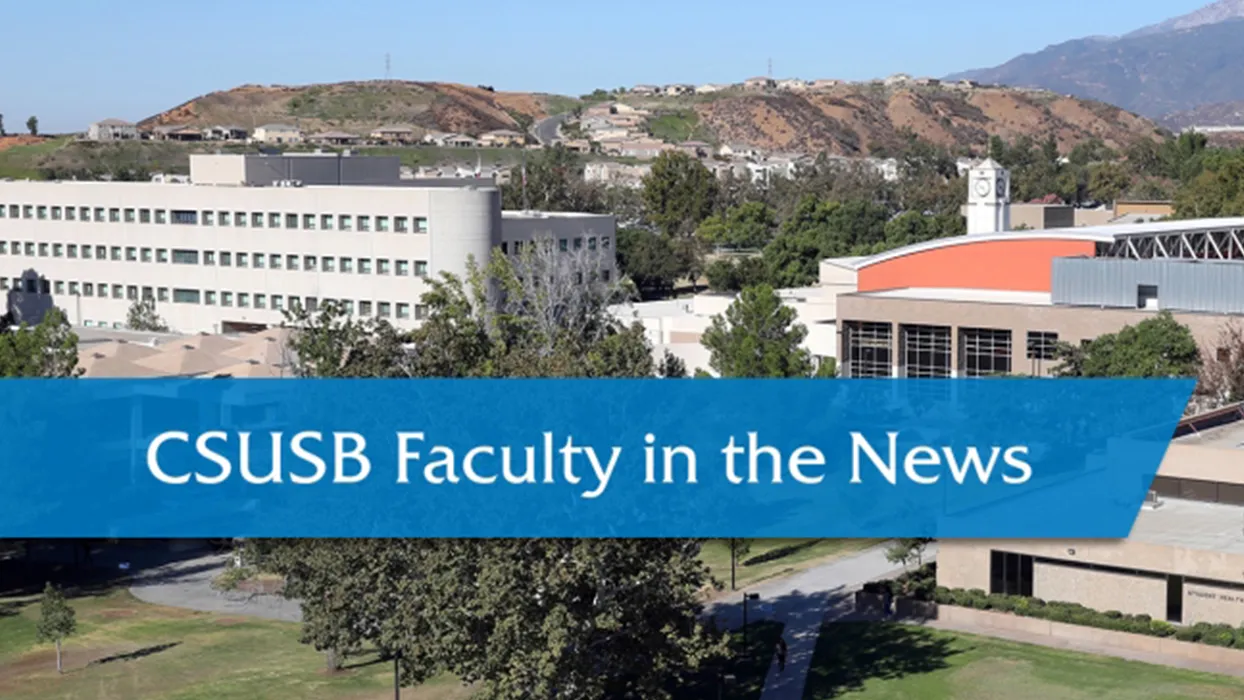NOTE: Faculty, if you are interviewed and quoted by news media, or if your work has been cited, and you have an online link to the article or video, please let us know. Contact us at news@csusb.edu.
One year later, landscape of hate still troubling, CSUSB hate crime expert says
The San Diego Union-Tribune
April 26, 2020
Brian Levin, director of CSUSB’s Center for the Study of Hate and Extremism, says little has changed in the year since a gunman burst into a synagogue in Poway, killing one person and injuring three others.
The gunman, identified as John Timothy Earnest, is currently awaiting trial in San Diego County. Authorities say he was motivated by anti-Semitism; the CSUSB center has logged an increase in homicides tied to it in the last three years.
In 2016, there were three. The next year 11, the following year 17. And last year there were 26, including the Poway attack that killed 60-year-old congregant Lori Gilbert-Kaye, and wounded Rabbi Yisroel Goldstein, congregant Almog Peretz and his 8-year-old niece Noya Dahan.
Levin said Earnest fits a type that has developed in the past several years. “What I think Poway represents is a striking new trend where young people in demographically changing areas are seeking to commit acts of mass violence,” Levin said.
Young, white men in their late teens and early 20s erupt in violence motivated by bigotry in communities that have demographic changes where the white population has declined, he said. Earnest is also charged with attempting to burn down a mosque in Escondido weeks before the Chabad shooting.
That intolerance is increasingly targeting Jews, Levin said. His center studied 30 years of hate crime data nationally and found Jews were the most-targeted religious group for hate. That trend is continuing.
Read the complete article at “One year later, landscape of hate still troubling, expert says.”
CSUSB professor interviewed about increase in anti-Asian incidents during pandemic
Associated Press via Fox News 5 (New York)
April 25, 2020
Brian Levin, director of the Center for the Study of Hate and Extremism at California State University, San Bernardino, was interviewed for an article about increasing hate incidents directed at Asian-Americans during the COVD-19 pandemic.
Hundreds of attacks have been reported, with few signs of decline, the news wire service reported. Rather than feel helpless, many are filming their interactions or carrying guns. Others are training in deflection instead.
The onslaught of anti-Asian attacks has evoked parallels to how Muslim Americans were treated after 9/11. However, the president's response made a difference. Six days after the 2001 terrorist attacks, President George W. Bush spoke of unity at a Washington, D.C., mosque and hate crime reports noticeably went down, according to Levin.
It’s difficult to predict whether incidents will dramatically drop once society goes back to “normal,” Levin said, because the pandemic is unprecedented.
“Generally when there’s a catalytic event, hate crimes tend to decline and have a bit of a half-life," he said. “But that presupposes a singular catalytic event as opposed to a rolling one."
Levin, a former NYPD officer, cautioned to only stop an attack if it can be safely done.
Read the complete article at “From guns to GoPro cameras, Asian Americans seek to deter attacks.”
These news clips and others may be viewed at “In the Headlines” at inside.csusb.edu
